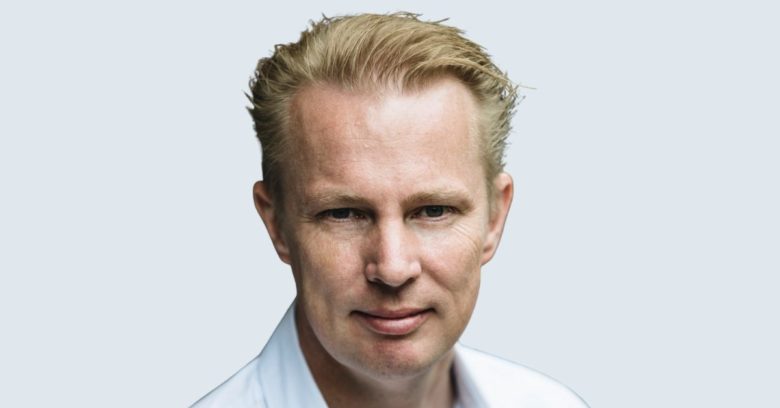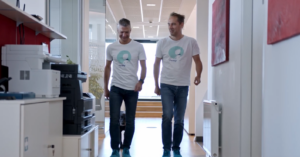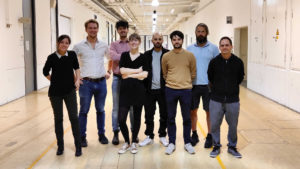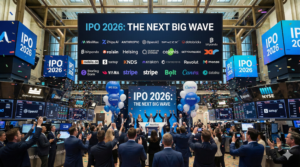Urban Impact Ventures: The New Bulgarian-Dutch Impact Investing Fund That Will Support Smart City Entrepreneurs Across Europe

The global urban tech market has been growing at a remarkable pace in recent years. According to Statista data, global spending on smart city projects from cities, companies and private persons surpassed half a trillion euros in 2019. As per an analysis of PitchBook data by Patrick Adler and Henrik Hoelzer, venture capital investment in the space increased from next to nothing in 2010 to €17.7 billion in 2015 and €62 billion in 2018. We are seeing more and more cities around the globe that collect data with IoT sensors and use advanced analytics to improve both the quality of living for their citizens and the efficiency of transportation, air quality, waste management and many other public services.
In Bulgaria, it’s still early days but things have started picking up in the last couple of years. In the startup ecosystem, we have companies like Develiot (developing urban air quality and remote water monitoring stations(currently present in Sofia, Vratsa, Slivo Pole, and other cities), Modeshift (providing software and hardware tools for automatic fare collection, automatic vehicle location, and real-time passenger information – adopted in Varna, Stara Zagora and several cities in Romania), and Enova H20 (Burgas-based venture fighting water pollution with biosensors). On an academic and city level, GATE, the launched last year big data institute in Sofia, is now collaborating with the local municipality for the development of a city digital twin. Burgas has an integrated platform with a user-friendly interface that offers real-time data about the city’s air quality, traffic, waste management as well as video surveillance of public spaces and key urban areas.
Yet, the ecosystem is yet to evolve, there hasn’t been that much venture capital allocated to the urban tech domain (although Lubomir Minchev’s Telelink Investments also recently started operations), and smart city solutions are still far from reaching the majority of smaller cities in Bulgaria. This might be about to change, though. Trending Topics learned that in early 2021, Urban Impact Ventures, a new smart city and impact investing-oriented VC firm with operations between Bulgaria and the Netherlands, will launch a fund with a special focus on entrepreneurs connected to the Central and Southeastern European region.
Urban Impact Venture will be led by Hans van Houwelingen who comes with over 20 years of experience in the investment management industry and is best known locally as a director with Telelink Holdings and his Chairman role in Telelink Business Services. We recently talked to him and covered pretty much everything one needs to know about the philosophy and upcoming plans of Urban Impact Ventures.
- What’s the current status of Urban Impact Ventures?
- What needs to happen before the urban tech ecosystem in Bulgaria reaches the next level and why it’s important for smart city solutions to also reach smaller cities?
- Details about the investment strategy and criteria of Urban Impact Ventures
- What does impact investing mean for the team of Urban Impact Ventures?
- Who are they planning to attract for limited partners?
- What are the main areas of expertise of the team of Urban Impact Ventures?
- How does Hans see the role of corporates in the whole urban tech picture?
- What’s the long-term vision for Urban Impact Ventures?
Trending Topics: What’s your story and how did you become part of the Bulgarian tech ecosystem?
Hans van Houwelingen: Over the past 20 years, I have accumulated vast experience in the investment management industry, predominantly with ING Group and its asset management spin-off NN Investment Partners. Between 2006 and 2012 I held country CEO roles in Greece and Poland. After that, I returned to The Netherlands where I became responsible for all our offices in the Central and Eastern Europe region, as well as overseeing the global product range of mutual funds and institutional mandates with €200B of client assets.
In 2016 I joined ACTIAM as CEO, a Dutch-based pioneer and thought leader in sustainable and impact investing with €63B of client assets under management. This further triggered my enthusiasm for the opportunity to generate a positive impact on people and the planet in addition to generating competitive investment returns – sustainable and impact investing represents one of the few growth themes in the investment industry during recent years and is critical in the transition towards a more sustainable society in the coming decade.
After 4 great years at ACTIAM, I felt it was about time to follow a more entrepreneurial path, with a stronger focus on technology, while maintaining a force-for-good mentality. Following several years as a director with Telelink Holdings, and as Chairman of Telelink Business Services since early 2019, I decided to honor an invitation from Lyubomir Minchev, a long term friend and Founder/CEO of Telelink, to join his corporate venture firm Telelink Investments. So, as of January of this year, I moved with my family to Bulgaria.
Meanwhile, I had the opportunity to independently establish a new impact investment firm, Urban Impact Ventures, focused on urban tech venture capital investments, operating with an international team based in both The Netherlands and Bulgaria.
What’s the current status of Urban Impact Ventures?
We started with the idea early 2020, and spent the first half of the year working on the investment thesis, on the impact framework we will apply, on our operational and legal setup, and on building the team – not just venture partners and investment associates, but also independent members of the investment committee as well as advisors. Today, in total, we have six members on the team, next to four external advisors. We started building our investment pipeline, expanding our deal sourcing network and ensuring sufficient financial runway until we generate revenues from managing assets.
In September we kick off our fundraising activities. In the meantime we are already deeply engaged with entrepreneurs looking for funding – we are not waiting until we close our first fund, we support them with their funding strategies and commercial traction so that they can get funded even if we are not yet able to invest with our fund. At times we will consider investing from our own balance sheet. It is all about being part of the ecosystem.
We have the ambition to launch our inaugural fund – Urban Impact Ventures I, in the first half of 2021.
Our scope for investments is European, mostly around pre-Series A, Series A or very late seed stage. Within our European scope, we have a special focus on entrepreneurs connected to the Central and South-eastern European region, which could be from multiple angles – it can be Bulgarian firm tapping mostly in the Bulgarian market but it can also be a French firm nearshoring its development team or operations team in Romania. Lately, we were involved in the funding of a Swedish solar roof company led by a Polish founding team and a manufacturing facility in Poland.
SEE is an attractive region that has a highly talented and motivated pool of (tech) people at a decent price, real estate costs and tax rates are also very good. We believe European entrepreneurs can really benefit from these conditions. We also believe the attractiveness of this region will be fuelled by a number of global megatrends and with that become much more important to Europe. For example, globalization as the dominant theme of the last few decades has been recently replaced by the theme of regionalization. At the same time, there are many positive signs for further economic alignment with the EU, and with the Euro single currency union, as well as traction in the development of local consumer markets on the basis of a growing middle class.
On top of that, the smartness of money comes into play. Our team and our advisors exhibit strong ties to the CEE region and some other countries in Europe, as such, we are able to support our entrepreneurs making the connection with more mature business partners as well as with many cities in these regions. In urban tech getting a first commercial reference project is often one of the largest obstacles for entrepreneurs, as many stakeholders are involved in sustainable city transformation like various departments within local municipalities, citizens or neighborhood representations, consultants, larger corporations, etc. Besides initial tender procedures in this region do not regularly accommodate for the participation of early-stage companies. That is something where we could support our entrepreneurs in addition to funding their business.
From your perspective, what needs to happen before the urban tech ecosystem in Bulgaria reaches the next level?
If one wants to develop a thriving ecosystem of startups and scaleups, it is crucial that these companies have sufficient opportunities for initial commercial traction in their immediate environment or country. For urban tech companies that means that commercial projects should not only be available in the few larger cities in a country but also in the next ten or fifteen cities. Local governments should clear the path and processes for entrepreneurs to participate in many and more smaller projects around the country.
What we see in most tender procedures today is that companies need to have existed for at least three years, have at least five other reference projects executed and have at least two million euros of annual revenue. I think that if one or two earlier-stage companies are allowed to participate in these procurement tenders, we will make a big step forward. Also from a funding perspective, we see that sustainable city transformation is mostly a race between the larger cities in Europe, the majority of funding for sustainable city transformation does not cascade down to mid-sized and smaller cities, that at the same time are less bankable themselves.
If we look at Bulgaria – Sofia, Varna, Burgas, Plovdiv – they have programs in place and tap into larger EU and national funding programs, many smaller cities with 50k – 300k inhabitants are lagging behind with limited projects, though they exhibit true ambitions to participate in sustainable city transformation and improve urban quality of life. They are less connected to the urban tech ecosystem and in need of creativity to launch and finance their projects, which is exactly what entrepreneurs could bring to the table.
This needs attention and we believe Urban Impact Ventures can fulfill an active role here. We are not necessarily focused on entrepreneurs doing a project solely in Berlin, Copenhagen, Sofia or Bucharest. We want them to also venture out in the rest of the country, so we start covering the whole urban population of Europe and not just a few large green dots on the map.
Can you share more about the investment strategy and criteria of Urban Impact Ventures?
Urban technology is a broad theme that we have broken down in four investment themes.
The first one is mobility, which ranges from electric and autonomous vehicles, green, clean and safe public transport modalities, city logistics, optimized traffic flows, smart ticketing and shared mobility systems.
The second theme is focused on physical infrastructure – everything you see when you walk through a city, whether it relates to the energy transition and alternative off-grid energy solutions, connectivity, safety surveillance systems, street and park lighting, parking systems, fountain management, waste and recycling and water management. For example, if you think about lighting, you can think about LED lighting in parks that lit up at night only when someone passes by, and charged by solar panels during the day. Newly emerging subthemes are urban farming and circularity.
Then, we have the urgency to establish and upgrade the urban digital infrastructure which became very visible around the whole corona situation. During COVID-19, we realized that we are extremely dependent on the physical administrative procedures with government offices in lockdown; also corona-apps were a good example of new digital infrastructure. Many public administrative services can leap into the digital phase, which will also make the government much more flexible. The digital infrastructure theme is also about making cities more inclusive in decision making, and not just around election time. Sustainable cities are inclusive cities; they execute those projects that are most needed by the population in the way that it is mostly appreciated by the population. Digital infrastructure allows municipalities to ongoingly facilitate citizen participation and feedback in important developments and decision. Formal elections are also expected to be based on digital infrastructure in the future.
Finally, we have the theme of liveability – this can involve peer-to-peer exchanges, social housing, any kind of activity that will to the quality of life and social inclusiveness. Also, advanced public green spaces and green roofs on buildings are within this theme. A good example we encountered lately was a company providing people in remote communities with a platform, laptop and connectivity to do online work for remote global customers at a decent fee, I think it was about 10 euros per hour. This allows younger people to stay in their hometowns instead of leaving for the largest cities and still earn a decent income, which on an aggregate level supports the long-term viability of smaller cities.
Many investments will touch on more than one theme – if you consider green hydrogen buses for public transport, it’s not just more pleasant around for the people through improved local air quality, it’s also good for the environment, at the same time it requires new physical infrastructure.
We intend to invest in companies with a ticket size ranging from a few hundred thousand up to €2.5M, the larger tickets probably staged in time with follow-up investments. We require a proven product that has been tested in at least a small market on commercial viability, and a balanced team of founders, preferably with years of experience in the field.
That should boil down to a portfolio of about 20 investments. We do not want to be too concentrated and we built the right team for that portfolio. With one additional venture partner joining us late 2020, we have 3 venture partners to oversee around 7 investments each, supported by 2 investment associates.
As regards the target size of our first VC fund, we will be aiming to collect total commitments upwards of €30M, maybe even towards €50M. Given we have planned 2 or 3 closing moments in 2021, a first close of €20M earlier in the year would be a solid take-off, allowing us to swiftly address the most attractive impact investments within our current deal pipeline.
We offer our investors a net IRR of around 15%, which is better than the realized industry average over the past decade, although maybe not as high as some of the top-tier firms did deliver. Net IRR means investment returns delivered to our investors after deducting 2% management fee and a potential performance fee. We think that in the current market conditions, and with the current interest rate environment, it is not realistic to commit a priori to a higher net IRR on an urban tech VC portfolio. It is important to mention that our potential performance fee allocation is dependent on both fulfilling our financial objectives (with a 6% hurdle rate), as well as our predefined impact objectives. The latter approach is expected to become best practice for any reputable impact investor across the globe, securing alignment of the fund manager and the investors on both financial as well as social and environmental results.
What does impact investing mean to you?
Our impact investing framework is designed around the UN Sustainable Development Goals (SDGs). We will only invest in companies that offer both attractive financial returns and a net positive contribution towards our society or planet at large. Every company will be matched on all the 17 SDGs and we will decide which of those are material for that specific company in a positive or negative way; then we will formulate relevant impact ambitions together with that company, which will be included in the term sheet. Every company in the world has a contribution effect on various SDGs, on specific goals some will have pluses, on other goals they will have minuses. It is important that material minuses are also taken into consideration and properly disclosed – as said, we are looking at an aggregate net positive contribution for each portfolio company ensuring the same for our total portfolio.
As an example, think about the growing number of banks and asset managers that exclude all investments in the tobacco industry, in line with changing investor preferences. Once the tobacco industry has less access to funding, we see that more and more farmers consider switching to soya, potatoes, or other crops that are much less labour intensive. So, you actually reduce the number of available jobs in low income agricultural communities, and as such a positive effect on SDG 3 (Good Health and Well-being) potentially coincide with a material negative effect on SDG 8 (Decent Work and Economic Growth). True impact investors do not cherry pick the positive contributions, they show the net aggregate impact across the whole spectrum of goals.
Another example, more relevant for the investment themes of Urban Impact Ventures, is about investing in green public transportation – like hydrogen or electric buses replacing diesel buses, to improve urban air quality and meet ambitious carbon reduction targets. If the hydrogen or electricity is produced on the back of a coal-fired grid, the impact on global carbon emissions is negative. One effectively improves local conditions at the expense of global conditions.
In summary, impact investing is about generating a net positive contribution to society at large in addition to competitive investment returns, while being transparent on all material underlying effects in the real world.
Who are you planning to attract for limited partners? Who does normally support impact funds?
Although our team members all exhibit extensive investment experience, as a new collective we are a so-called emerging fund manager -inaugural funds like ours often get backing from family offices, smaller institutions, larger angel investors as well as development institutions, endowments and foundations. Once you have proven the value of the new team, with the second or third fund, you can usually go up the ladder to larger institutional pools of money like pension funds, insurance companies, sovereign funds and large corporates. We do not exclude larger institutional investors, and our team is well-connected in that corner of the investment industry, though we would expect that most commitments for our first fund will come from the sources initially mentioned.
In the second part of the year, we will do investor roadshows across five locations – the Netherlands, France, Switzerland, Poland, and South Korea if travel is possible. For every location, the types of investors are different. In the Netherlands, we mostly expect to meet family offices, foundations, and angels. In France, impact investing is a strong theme for the whole financial ecosystem, supported by the government; as such large banks and pension funds are keen to discover new impact investment strategies and innovations, so we might tap into larger institutional pools there. In Switzerland, it is again family offices, in addition to a mature Impact Fund of Funds ecosystem. In Korea, we focus on sovereign wealth and corporate venture arms. Poland has a growing group of angel investors and entrepreneurs that start looking at impact investing opportunities in private markets and thematic funds.
So, it’s very different per country and depends on what kind of investor ecosystem is present or developing; besides how much investors are open to the theme of urban tech, whether they are ready for impact investing, and whether they believe impact investing will give them equal or sometimes even better returns than traditional investing. The mindset that impact investing can go along with attractive or superior financial returns and as such becomes part of the core investment portfolio of institutional investors is very strong alongside the axe from Stockholm down to Paris, less so in the countries around as well as in CEE/SEE regions.
In Bulgaria, the impact investing topic is also emerging; there are not yet that many professional and angel investors that are convinced impact investing should be at the core of investment approach. As mentioned in some countries in Europe impact investing is now reaching the core of investment portfolios and we are optimistic that that will spread around the whole continent in the coming years!
What are the main areas of expertise of the team of Urban Impact Ventures?
Beyond my own experience in global asset management, impact investing with a focus on financial inclusion and energy transition, and direct involvement with entrepreneurs and technology firms including those in the mobility and physical infrastructure themes, our team members bring along a relevant mixture of experiences, knowledge and credibility.
Our venture partner Korstiaan Zandvliet has strong credentials around the European liveability and infrastructure themes, with past and current involvements as an entrepreneur in social ventures, local city initiatives and urban food solutions; Korstiaan also spent many years in leading technology scale-ups and was the founder and CEO of the first equity crowdfunding platform in the world that went public in the US. Our venture partner Hristo Valev gained long term experience and strong investment track records around energy transition, clean energy and the technology sector in Bulgaria with Karoll. Our third venture partner will formally join us in late 2020 with a strong background as an entrepreneur and investor in the digital infrastructure domain across Europe. Our investment associates come with over 10 years of investment and analyst experience in European private equity markets. Finally, our team includes a seasoned general counsel with over 15 years of legal and compliance experience in the global asset management industry.
The team is supported by four high-level external advisors with diverse and complementary areas of expertise: Ellen van Bueren, a professor in urban development at Delft University; Marina Niforos, a consultant and governmental advisor with a strong background in technology and development finance; Rafal Andrzejewski, a well-known private equity investor in CEE region; Raymond de Kuiper, experienced investment banker and institutional investment professional.
We value the relevance of independent investment committee members with a natural ability to balance the opportunistic deal-driven mentality of a VC team with a measured risk management lens. As such we are proud to have Han Rijken (who has over 30 years of credit investing experience and investment leadership roles) and Claudia Marcusson (Standard Charterted VC team in Singapore, former Chief Risk Officer of a large investment firm).
How do you see the role of corporates in the whole urban tech picture?
Larger corporations are very relevant. If one wants to develop an ecosystem around urban areas, one cannot do it alone. By definition, sustainable city transformation requires an inclusive approach. Our team did extensive research last months in order to understand what is going on in many cities in Europe; we are continuously expanding our proprietary database with cities and the various projects that are running or expected to be initiated. We would like to discover as well whether municipalities are doing the things that their citizens really need, instead of those things that are just for prestige.
Entrepreneurs are not going to solve all the challenges of cities; it often requires a blend of entrepreneurs and established more mature corporations that operate together with local governments and combine entrepreneurial creativity and flexibility with the breadth, knowledge, experience and scale of corporates to deliver as a team. In addition, we regularly see a variety of consulting firms involved with urban development programs and projects. Entrepreneurs need to get a stamp of approval to be allowed into this ecosystem as a direct participant or as a subcontractor. From various angles, corporates are relevant.
In urban technology investing it is important to unravel the whole ecosystem. That is why we spend many months before initiating our actual fundraising – one has to look at the whole urban landscape, which is more than building a venture capital deal pipeline; it also requires nurturing an ever-expanding network of corporations, consultants and other suppliers to the urban arena; finally, you have to be in touch with cities and their communities to stay in sync.
What can this database of smart cities in Europe tell you?
Europe has around 1100 cities with more than 50k population, of which 900 have less than 300k population (mid-sized and smaller cities). That represents an attractive opportunity for scaling of sustainable city transformation solutions that have proven themselves in some locations. By building a database of smart cities in Europe, we are enabled to discover patterns so that we can gather entrepreneurs, corporate partners, and consultants who delivered something great in a certain city and introduce them to the next five cities that have similar needs.
Of course, it takes time to realise a certain level of detail to our database for all cities in Europe. On top of gathering digital information and desk research, we really embrace the opportunity to explore cities on the ground to see what is going on, or even have direct engagements with municipalities to better understand the ambitions, planning and limitations. Just as an example we recently received a warm welcome by the mayor and deputy mayor of Vidin with full insight into the city’s ambition, development roadmap and project planning, and the challenges ahead for the city. That allows us, at a later stage, to introduce entrepreneurs that might be relevant for the specific solutions required.
In our database, we collect an overview of projects currently running, as well as those targeted by cities in the next three years, or specific regulations that are relevant for sustainable city transformation. As an example, the city of Utrecht in The Netherlands recently made it mandatory for every new downtown property development to have green rooftops, with more cities in Europe to follow suit. So, if you are an entrepreneur in green roof projects and innovations, we will be able to connect you with the relevant developers active in those cities.
What’s the long-term vision for Urban Impact Ventures?
First of all, we would like to add a sense of urgency to everything said so far. The far majority of people in the world these days agree with the necessity of humanity to transform towards a more sustainable society in order to accommodate for 10 billion people above the poverty line on this single planet in 2050 without exhausting the planet’s resources like freshwater, biodiversity and food supplies and without triggering irreversible climate patterns. To secure a fair chance for success, we have to bend the curve now, and build a greener and more inclusive urban environment. Participating in that transformation offers vast potential for entrepreneurs if they are able to get the funding and initial commercial traction to design and develop their solutions now. Therefore, we hope that Urban Impact Ventures can be one of those setting the example, also for investors in the SEE region, to include impact investing into their minds and into their portfolios in the coming years.
The long-term ambition of Urban Impact Ventures is to improve urban quality of life in Europe. We will initially focus on venture capital to support as much entrepreneurs as possible tackling the most urgent challenges, delivering attractive financial returns to our investors with a net positive contribution to society alongside the SDGs; in the longer term, growing with the entrepreneurial eco-system, we might consider other asset classes supporting our mission to fund sustainable city transformation – that might be private equity, or private debt. But at least in the next few years, we expect to be fully focused on building our impact VC track records and accumulating a relevant asset base.




























